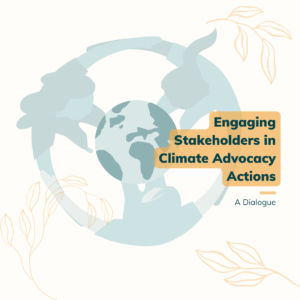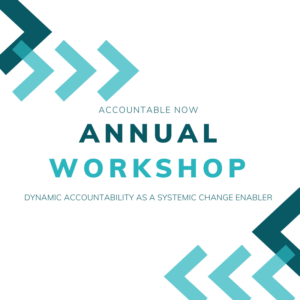In recent years, in an attempt to measure how diverse and inclusive our organisations are – standards, benchmarks, indexes and methodologies have been developed. But is measuring our diversity and inclusion that easy? Can we use the same methodology across different types of organisations or contexts and also across different realities? These new methodologies and standards are providing CSOs with guidelines to begin reflecting on our practices, but what else can be done?
The session therefore aims to discuss the multiple approaches that CSOs are using to apply diversity and inclusion into their work. It will start off with a presentation on measuring D+I by Care International colleagues, followed by a breakout group and a Panel discussion featuring colleagues from Accountability Lab, Care International and CIVICUS. Find the panellists below:
Civil Society Organisations (CSOs) as agents of change have historically advocated for policies and programmes that seek to tackle inequality and exclusion; however, carrying out these actions does not necessarily mean that the organisation is actually diverse and inclusive and/or that they are advancing internally these values as they have aimed, among others.
Diversity is about answering the question who is part of the organisation, and how those people are engaged. Organisations need to make sure that we are involving people with a wide range of different social and racial/ethnic backgrounds and of different genders, sexual orientations, abilities and disabilities, and perspectives. Inclusion is about how well the contributions of every different group of people are valued, heard and integrated into the decision-making process within the organisation and it is also about creating the appropriate spaces for people’s voices to be heard and listened to.
CSOs recognize that there is significant value in fostering diversity and inclusion within their own organisations, yet we continue to observe that in a large percentage of these, power is held by a small group of people that is usually not diverse. Racism, sexism, homophobia and other forms of discrimination operate on a broader level within organisations and systems, and too often – organisations may not have the right incentives and/or resources to properly address them. Yet, it is undeniable that these issues are underlined in every society, and that CSOs around the world will need to continue strengthening their diversity and inclusiveness policies and practices. But how can we make sure that we are advancing in the right direction?
In recent years, in an attempt to measure how diverse and inclusive our organisations are – standards, benchmarks, indexes and methodologies have been developed. But is measuring our diversity and inclusion that easy? Can we use the same methodology across different types of organisations or contexts and also across different realities? These new methodologies and standards are providing CSOs with guidelines to begin reflecting on our practices, but what else can be done?
Objective: This session is a continuation of the JEDI Session at AN’s 2022 AGM. Due to high demand, we aim to provide another opportunity for participants to ask questions and workshop ideas and experiences in a more interactive format.
This is a conversation between peers and practitioners, aiming to address the following guiding questions:





Accountable Now is a global membership platform. We support our members – and civil society at large – to be more transparent, responsive, impact-focused, and locally led. Interested in becoming a member?
Accountable Now is a member of Accountability Lab’s global translocal network.